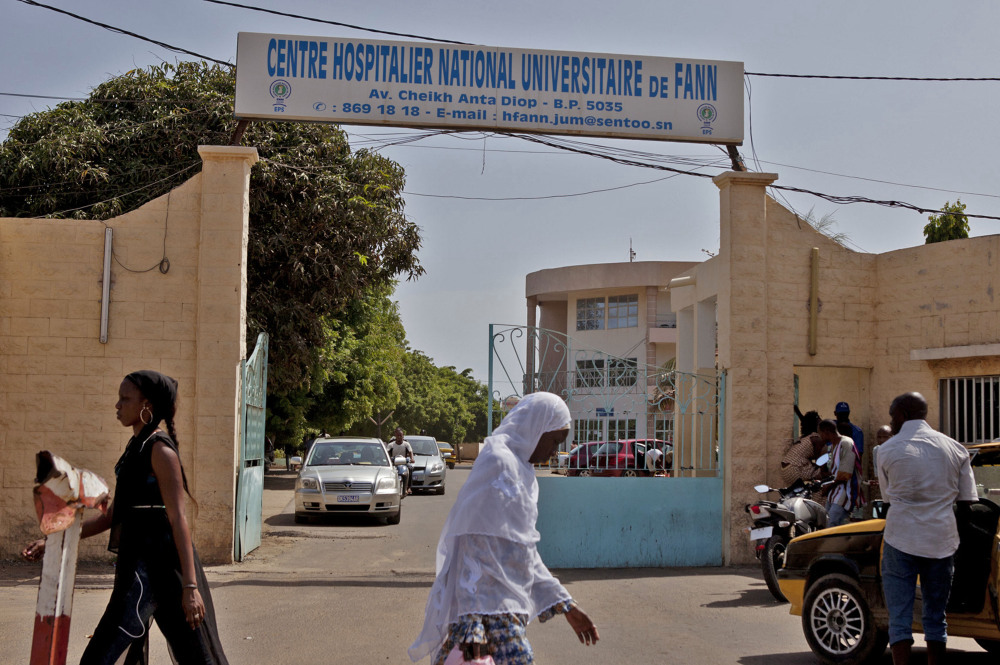DAKAR, Senegal – A university student infected with Ebola evaded health surveillance for weeks as he slipped into Senegal, carrying the deadly virus to a fifth West African nation showing how quarantines, border closures and flight bans have failed to contain the outbreak.
Now health officials must try to identify and monitor all of his contacts in Senegal’s capital of Dakar – no small feat in a metropolitan area with more than 2 million people that serves as a major transportation hub and popular destination for European tourists.
The student from Guinea finally showed up at a hospital in Dakar on Tuesday, seeking treatment but concealing that he had been in contact with other Ebola victims, Health Minister Awa Marie Coll Seck said.
The next day, an epidemiological surveillance team in neighboring Guinea alerted Senegalese authorities that they had lost track of a person they were monitoring three weeks earlier, and that the person may have crossed into Senegal.
The student, who is in satisfactory condition, was tracked down in the Dakar hospital the next day and immediately quarantined, Seck said. Authorities also sent out a team to disinfect the home where he was staying.
Senegal is among the African nations banning flights from Guinea, Sierra Leone, Liberia and Nigeria, where the accelerating outbreak has killed more than 1,500 people. Senegal also has closed major border crossings, but West Africa’s frontiers are so porous that it would be impossible to seal borders altogether.
Doctors Without Borders and other public health organizations say such measures hamper relief efforts and further stigmatize people from infected countries.
“The Senegal case is not unexpected. All countries in the region should be getting ready for a possible case of Ebola,” said Peter Piot, a co-discoverer of Ebola who directs the London School of Hygiene and Tropical Medicine.
“I think it illustrates the ineffectiveness of closing borders and canceling flights. People will still find a way to get around,” Piot said.
Health officials instead call for checking travelers’ symptoms at airports and land crossings.
More the 500 new cases were recorded this week, far outpacing the 400 cases from the week before, WHO announced Friday.
“Emergency action needs to be taken to reverse the situation to avoid a catastrophe,” U.S. Centers for Disease Control and Prevention director Tom Frieden warned while visiting Sierra Leone on Friday.
But a top official from Doctors Without Borders said “the World Health Organization can’t handle” this crisis. Mego Terzian, the group’s president for France, told France Inter radio that the U.N. Security Council should intervene and that countries with military medical units should get involved.
“We can’t create a prison in the region and watch the Africans die,” Terzian said.
Severe measures such as cordoning off entire neighborhoods can backfire by provoking unrest and instability that makes controlling the disease even more difficult, he warned.
On Thursday, townspeople in Guinea, confused about efforts to disinfect a market, ransacked the place and attacked the vehicles of sanitation workers. About two dozen people were injured, and a local curfew had to be imposed.
Fear is one of the biggest challenges to containing this outbreak. The disease is seen as a death sentence even though about half survive, and getting good treatment early can improve the odds considerably.
Many who do survive struggle to convince family and friends they’re no longer contagious. Doctors are trying to help, holding ceremonies and publicly embracing patients when they are discharged to show that contact is safe.
Officials in Liberia planned just such ceremony Saturday for two health care workers who have recovered after receiving ZMapp, the same experimental drug that two Americans also received before they were treated and released in the United States.
Associated Press writers Clarence Roy-Macaulay in Freetown, Sierra Leone, Sarah DiLorenzo in Dakar, Senegal, Jonathan Paye-Layleh in Monrovia, Liberia, and Boubacar Diallo in Conakry, Guinea, contributed to this report.
Send questions/comments to the editors.



Success. Please wait for the page to reload. If the page does not reload within 5 seconds, please refresh the page.
Enter your email and password to access comments.
Hi, to comment on stories you must . This profile is in addition to your subscription and website login.
Already have a commenting profile? .
Invalid username/password.
Please check your email to confirm and complete your registration.
Only subscribers are eligible to post comments. Please subscribe or login first for digital access. Here’s why.
Use the form below to reset your password. When you've submitted your account email, we will send an email with a reset code.